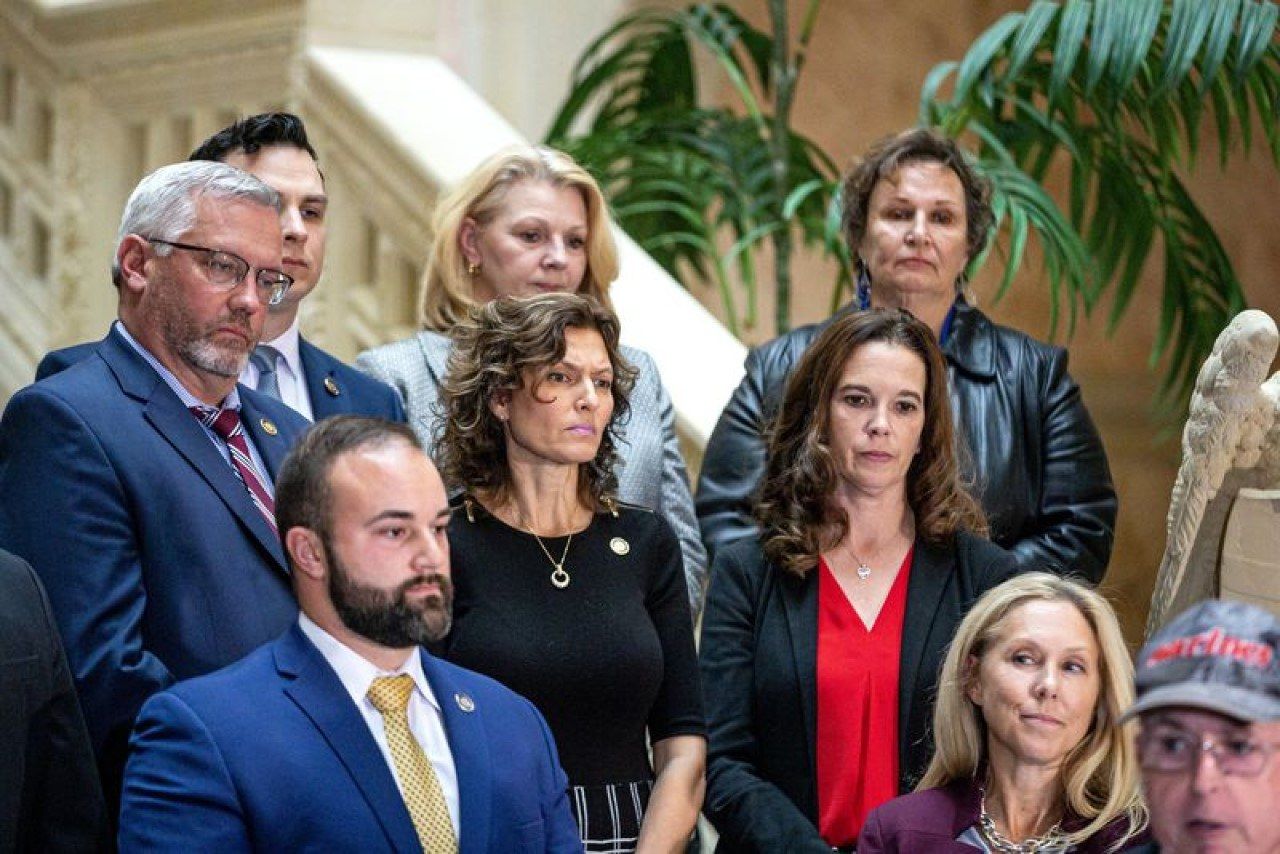September 08, 2023
Doing It for the Content?

A photo from WIFT of a news conference in the state Capitol in Harrisburg on November 28, 2022. U.S.
Credit: Dan Gleiter / PennLiveThe News Literacy Initiative's own Matt Jordan had the opportunity to speak with WITF journalist Robby Brod about the use of outrageous claims and propaganda to cultivate a political following.
These are topics News Over Noise visited when Joan Donovan, a leading expert on media manipulation, disinformation campaigns, and online extremism, joined us for Episode 106: Trolling the Information Economy. Donovan also gave a guest lecture at Penn State in October 2022, during which she shared insights into the communication, media and other strategies of extremist groups like the Proud Boys.
For a current real world example of how disinformation campaigns can be used to gain political traction even at a state level, we can turn to WITF's news coverage of state lawmakers.
When asked to comment on the matter of Pennsylvania Republican lawmakers preemptively voicing opposition to renewed COVID restrictions, despite the fact that nobody is actually calling for them yet, Jordan described how tactical rumors (such as those about the return of stringent COVID regulations) can generate engaging content among supporters, fortify backers, and even generate party revenue.
Jordan also explained why claims created by this kind of "agitation propaganda" can be difficult for fact-checkers to verify and his expectation for the trend to continue. With this in mind, Jordan suggests visiting other media sources when one seems to be only reporting catastrophes and being selective about news consumption, as we emphasized in News Over Noise Episode 104.
